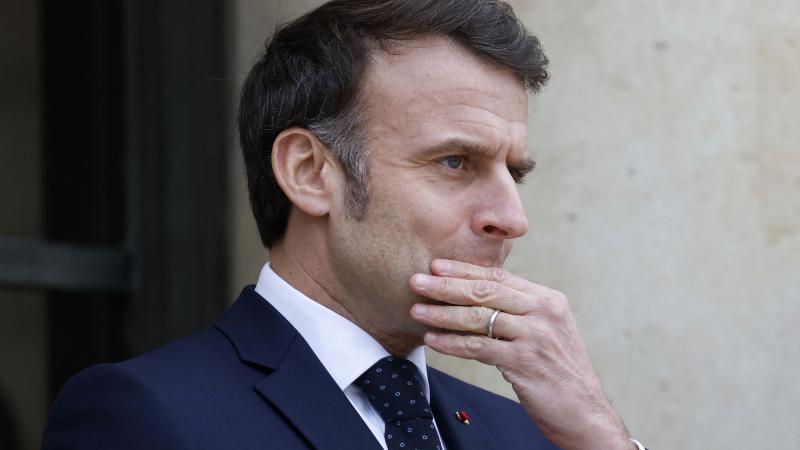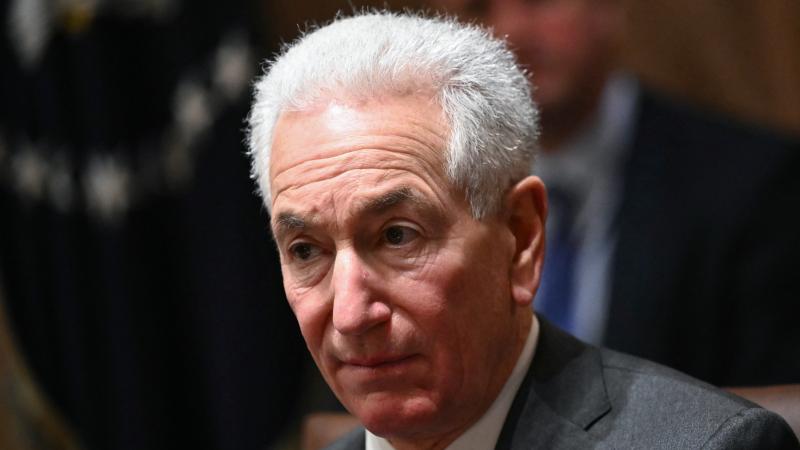Beyond BoJo and Brexit: British Conservatives size up field of hopefuls to succeed ousted PM
With Boris Johnson gone and Brexit a fait accompli, will the temporary Conservative voters who gave the party its big majority in the last election return to their traditional parties?
A job vacancy now exists for the leader of the British Conservative Party, and the perks include becoming the next prime minister of Great Britain and Northern Ireland.
The choice the party makes to fill that role will have far-reaching consequences for its future. It did win an 80-seat majority in the last election, but a major reason for that was the Bojo Factor.
"Without Boris Johnson, we wouldn't have Brexit today," said Nile Gardner of the Heritage Foundation's Margaret Thatcher Center for Freedom in a TV interview on "Just the News, Not Noise."
Even though the referendum had been held in 2016 and the British people voted to leave the European Union, his two immediate predecessors — Theresa May and David Cameron — were both Remainers, so nothing happened.
Gardner, a former aide to British Prime Minister Margaret Thatcher, believes the huge election win in 2019 was due to Johnson's appeal. "Boris Johnson had this incredible ability to win over large numbers of people who had never voted for the Conservatives before," he told cohosts John Solomon and Amanda Head.
But was it Johnson’s charisma or the desire to see Brexit through that led so many people to change their vote?
The big question that has concerned Conservative Central Office ever since is whether those temporary Tories return to their traditional parties at the next election now that Brexit has been accomplished.
Clearly by dumping their former star so abruptly this week the ministers who resigned en masse calculated that this is indeed what is going to happen, and Johnson has gone from being an asset to a liability.
Particularly after Tory losses by huge margins in the last two by-elections
As politicians in the U.K. don't have to worry about midterms, Conservatives hope that the economy will have improved by the next general election, which isn't due until 2025, unless the prime minister of the day calls it sooner.
To enter the race, Conservative MPs need to find eight others who will back them. In the next round they must increase that to 5% of their fellow Tory MPs, which as things stand is 18. That increases in the second round to 10%, or 36 votes, and in the following rounds the one with the least number of votes is eliminated until just two candidates remain and the final ballot takes place.
Johnson's selection process took six weeks, so this will be a long summer of Westminster horse-trading and cell phone-ruined holidays.
The current top favorites to succeed Johnson are: Penny Mordaunt, the international trade minister and former defense minister; Rishi Sunak, former chancellor of the exchequer (finance minister); and Sajid Javid, whose most recent senior cabinet position was as health minister.
None of these have Boris Johnson's charisma or international recognition, but they don't share his propensity for scandal either, which may count for more when the public makes its decision at the polls.
Mordaunt became the U.K.'s first female defense secretary, and she once served as a Royal Navy reservist. She is also a staunch Brexiteer who enjoys a lot of support from her fellow MPs.
Sunak has grabbed the most headlines over the weekend, but a very slick promotional video he released has led to accusations that he was working on it before Johnson stood down. He was also fined alongside Johnson in the "Partygate" affair and was finance minister when the U.K. economy suffered its most severe crash in 300 years.
Javid was the first senior minister to resign to try to remove Johnson, shortly preceding Sunak. Of the two, he was the angrier in tone, which may not go down well with traditional keep-calm Conservatives who tend to recoil from pushy types.
Gardner's list includes two other names. "I think Liz Truss, the foreign secretary, has been outstanding on Ukraine," he said. "Priti Patel, the home secretary, is a very strong Thatcherite conservative. I think any of those candidates would make excellent prime ministers.”
The first issue the hopefuls will have to deal with is the cost-of-living crisis. There are fears that the UK could soon fall into recession, with the Bank of England predicting inflation to reach 11% in the autumn and an average household energy bill likely to exceed $3,500 by the year’s end. In some places gas at the pumps costs $2.40 a liter, and food prices have been rising sharply.
This is being blamed on the war in Ukraine, but questions are also being asked about the impact of Johnson's commitment to achieving net-zero CO2 emissions by 2050.
Last week, his former chief Brexit negotiator, Lord Frost, penned a devastating critique in The Telegraph newspaper on the viability of his renewable energy plan. Frost warned it would lead to "compulsory demand control and rationing." Already, gas home heating costs are four times higher than last year. His solution is to lift the current moratorium on fracking.
A third issue which hasn't completely gone away is Brexit, particularly the ongoing issue of Northern Ireland and the Johnson administration's original decision to site the custom border down the Irish Sea, leaving Ulster both in and out of the EU.
The U.K. is now seeking to unilaterally amend that decision, claiming it might lead to renewed violence from pro-unionists in the province who feel they are being abandoned. The EU is threatening court action to prevent this.
Some Remainers such as Lord Heseltine, who helped end Prime Minister Margaret Thatcher's third term in office, believe "with Boris gone, it is all over for Brexit," but that seems unlikely in the short term, if ever, as even the Labour opposition have ruled out rejoining the EU.
And with the Conservative Party’s popularity already tanking, there is little incentive to abandon the policy that gave it the huge majority it currently commands.
















